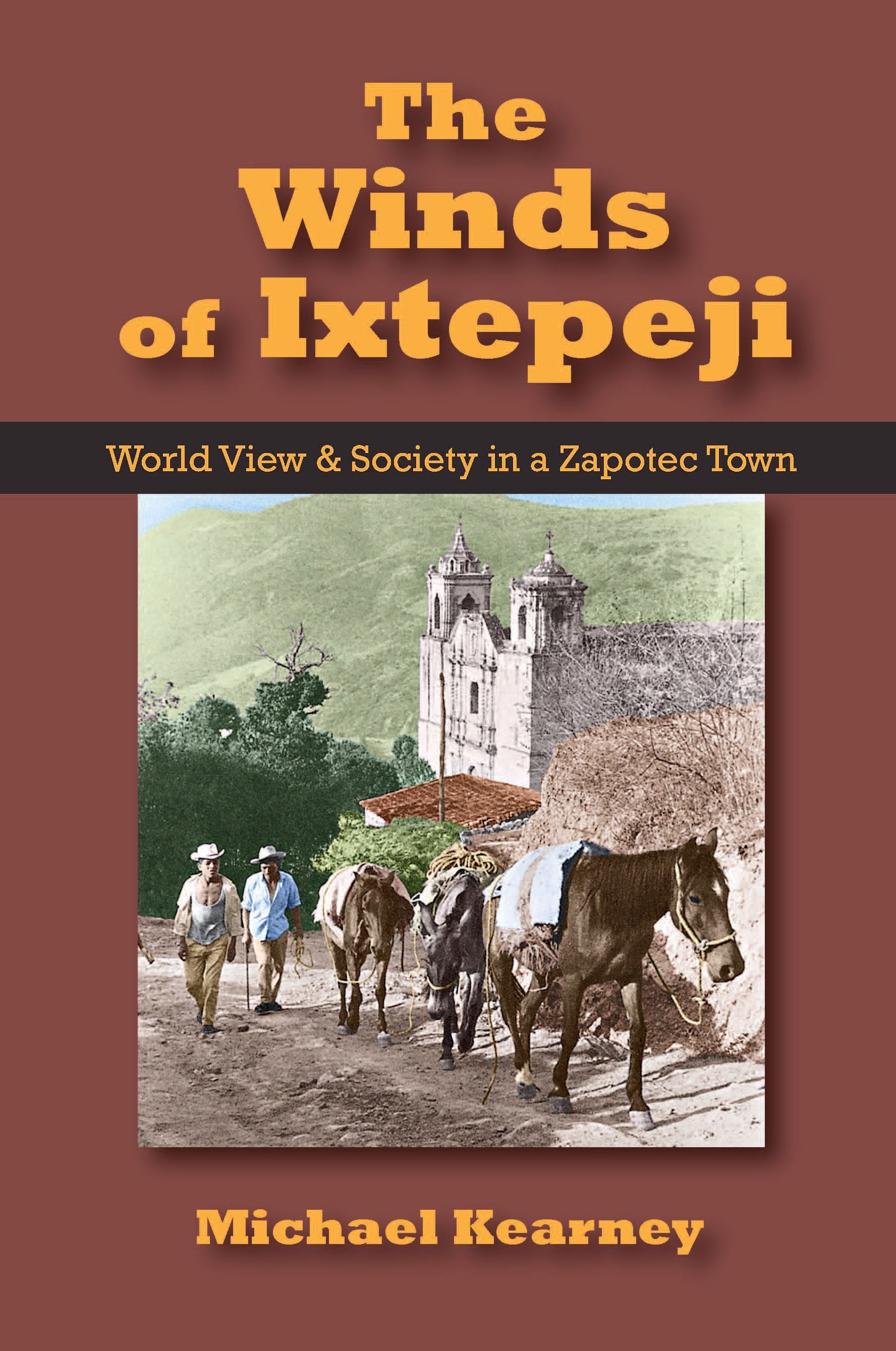1. Introduction
2. The Town of Ixtepeji
Cultural and Geographic Setting / Man and the Land / Settlement Pattern and Housing / Health and Illness / Diet / Formal Organization / Arriving at Consensus / Barrio Organization / Intercommunity Relations
3. Town History and Myth
Pre-Columbian Period / Colonial and Post-Colonial Periods / Twentieth Century / The Myth / Recent History
4. World View in Ixtepeji
Basic Propositions
5. The Concepts of Aire and Susto: Symbolic Representations of Perceived Social and Geographic Environment
Aire / Susto, Spirits, and Death / Summary
6. Appearances Cannot Be Trusted
The Concept of Engaño / Childhood Insecurity and Engaño / Ilusión
7. Thou Shalt Covet
Muina and Chípil / The Social Meaning of Food Sharing
8. The Passage of Time
Historic and Cosmic Time / Concepts of Aging / Speech Patterns and Time Orientation
9. The Burden of Life
Attitudes toward Municipal Cargos / Religions Attitudes / Fatalism
10. Everyone Must Drink
Folk Beliefs about Drinking / Drinking Patterns / Etiological Factors / Drinking as a Means of Transcendence / Ambivalence toward Drinking / Case Histories / Drinking and Religious Conversion / Summary
11. La Llorona: Symbol of Family and Interpersonal Relations
12. Adjusting to a Hostile Environment
Defensive Strategies / Emotions and Philosophy of Life
13. Prospects for Change
Change in the Concept of Change / A Strategy for Development / The Beginning of Innovation and Cooperation
14. Summary
Glossary

139 pages, $23.95 list
0-88133-210-0
978-0-88133-210-0
© 1972
paperback
eBook availability
The Winds of Ixtepeji
World View and Society in a Zapotec Town
Dr. Michael Kearney (1937–2009) focused his life’s work on the study of class, ethnicity, migration, and the theory and ethnography of transnational communities and processes.
The Winds of Ixtepeji, his first major publication, is a sociopsychological exploration into the world view and social organization of a Zapotec mountain town called Ixtepeji in the state of Oaxaca, Mexico. The main topic is how the Ixtepejanos perceive reality as potentially dangerous: perilous beings abiding in the air and friends and family possessed by envy pose constant threats to self-esteem and interpersonal relationships. Such perceptions affect, and in turn are affected by, the conduct of village life—a life that centers on hard work and a struggle to survive in a harsh environment.
Ixtepejanos, who believe they are abandoned to their existence, are also aware of an idealized vision of another world, glimpsed in magazines, movies, and trips to the city. This other world—forever unattainable—is one of unlimited wealth and power, of security and happiness. In an attempt to adjust to their own deficient world, Ixtepejanos repress their desire for better conditions, drink to create a more ideal environment, and disparage themselves—acts that only intensify a barely tolerable existence. Although world view is the prevailing focus of Kearney’s cognitive study, other salient features of the cultural and social systems are effectively dealt with and interrelated, including politics, economics, and religion.
The Winds of Ixtepeji, his first major publication, is a sociopsychological exploration into the world view and social organization of a Zapotec mountain town called Ixtepeji in the state of Oaxaca, Mexico. The main topic is how the Ixtepejanos perceive reality as potentially dangerous: perilous beings abiding in the air and friends and family possessed by envy pose constant threats to self-esteem and interpersonal relationships. Such perceptions affect, and in turn are affected by, the conduct of village life—a life that centers on hard work and a struggle to survive in a harsh environment.
Ixtepejanos, who believe they are abandoned to their existence, are also aware of an idealized vision of another world, glimpsed in magazines, movies, and trips to the city. This other world—forever unattainable—is one of unlimited wealth and power, of security and happiness. In an attempt to adjust to their own deficient world, Ixtepejanos repress their desire for better conditions, drink to create a more ideal environment, and disparage themselves—acts that only intensify a barely tolerable existence. Although world view is the prevailing focus of Kearney’s cognitive study, other salient features of the cultural and social systems are effectively dealt with and interrelated, including politics, economics, and religion.